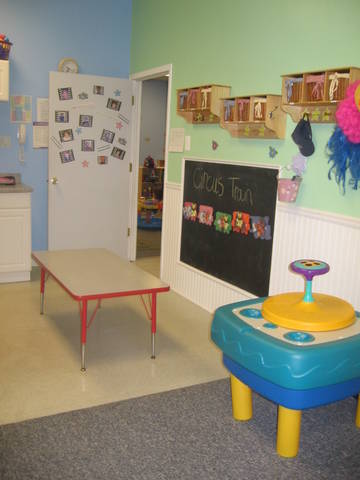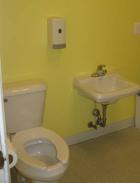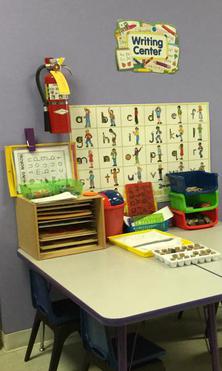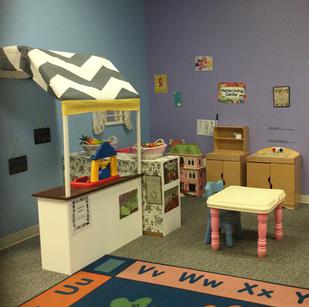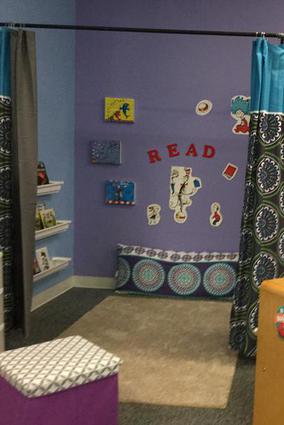Nursery
Treasured Friends Daycare Inc. Programs
We take pride in the programs that we offer. It is our mision to provide your child with a loving, clean atmospere. If you have any questions regarding our programs or would like more information, please contact us:
High quality and 100% customer satisfaction are our top priorities.
Nursery Classroom
6 weeks- 14 months old
A loving atmosphere where intellectual and physical development is stimulated with music, literacy, language, muscle development and the exploration of the environment using age appropriate equipment. A staff ratio of at least one adult to 3 children is maintained.
Waddlers Classroom
14 months-22 months
Older, more mobile infant’s development is encouraged through physical activities such as walking and climbing; and through music and movement activities. Encouragement of self-help and social skills such as feeding and getting along in a group, are planned as part of the daily routine. Teachers respond to each child’s language development by describing actions, expanding vocabulary, engaging in conversations about every day experiences, and by reading stories and singing songs. Outdoor play is provided when weather permits.
 | ||||||
 | ||||||
 | ||||||
Toddler Classroom
22 months - 33 months
We believe that all children have the right to grow and learn in a warm, safe, and loving environment. In our toddler room your child will have the opportunity to increase his or her independence while exploring his or her surroundings.
Toddler growth and development:
A remarkable milestone is achieved as a child enter this stage of development. The ability to move about is reached by children who are able to walk. Other children may reach this milestone by finding other means of mobility if a handicap prevents conventional abilities.
 | ||||||
 | ||||||
 | ||||||
Preschool Room
3 1/2 - 5 years old
Preschoolers are much more independent and require less assistance during structured portions of the day. Social and problem solving skills, including bargaining and compromising, become more advanced as these children work more cooperatively with one another and are introduced to more complex ideas and social interactions. Continual practice and refinement of social skills is a critical component in the development of positive self-esteem and self-confidence.
 | ||||||
These children have large blocks of time throughout the day to work on social skills and social interactions as well as to develop creative thinking processes. Creativity in the classroom is encouraged through the use of themes designed to develop curiosity about learning. New concepts and opportunities allow these children to experience a variety of ways to learn new things and to use their continually expanding base of knowledge. They use songs, storytelling, literature, language, games, blocks, manipulative's, and other creative materials in more sophisticated ways and are given time devoted to developing their own unique themes of play. Teachers encourage cooperation and teamwork to help develop a spirit of respect and caring. The work of preschoolers is developing INITIATIVE.
Preschoolers:
Initiate a lot by talking, creating, exploring
Ask WHY? a lot!
Are aware of a wide range of feelings and ways to express feelings
Enjoy dramatic and make-believe play achieve the height of imaginative, fantasy play
Love to play with words and language. Are curious and inventive
Repeat new skills until they are mastered
Learn through ACTIVE play masters of running, jumping, climbing
Develop increasing control over small and large motor skills
Are focused on the process of play and not the product
Can be bossy and critical
Love to read, play, sing, dance, explore. We are a curious bunch!
Much of a preschool/Pre-K child's time is spent in developing friendships. Time is given for children to work on social skills (imagination, planning, creating, problem solving, being courteous, cooperation). Teachers will model appropriate social behavior and will address concerns as needed (either individually or in a group). Teasing and making fun of other children
will not be tolerated regardless of the situation. Alternate ways of positive interactions will be explored in these situations.
A typical day of a Preschooler
Arrival – 8:40 am Arrival, Greetings, Breakfast, and Choice Activities
Arrival, Greetings, Breakfast, and Choice Activities
8:40-9:00 am  Open Snack and Free Choice
Open Snack and Free Choice
9:00-9:20  Circle Time
Circle Time
9:20-10:10 Choice Time / Learning Centers
Choice Time / Learning Centers
10:10-10:30 Music & Movement
Music & Movement
10:40-11:00 Small Group
Small Group
11:00-11:15 Read – a – loud / Zoo phonics
Read – a – loud / Zoo phonics
11:15-11:40 Outside Time
Outside Time
11:40- 12 :10 pm  Lunch
Lunch
12:10 – 2:30 pm Quiet / Rest
Quiet / Rest
2:30 – 3 pm Wake Up / Clean Up/ Puzzles
Wake Up / Clean Up/ Puzzles
3 – 3:15 pm Snack
Snack
3:15 – 3:35 pm Afternoon Circle
Afternoon Circle
3:35 – 4:35 pm Free Choice / Outside Time
Free Choice / Outside Time
4:35 – 4:45 pm Clean Up
Clean Up
4:45 – 5:10 pm  Music
Music
5:00 – 6:00 pm Individual Quiet Play
Individual Quiet Play
 | ||||||
 | ||||||
 | ||||||
Young Preschool
33 months - 3 1/2 years
Our program sets children up to succeed in a warm, loving, fun environment. Along the way, they develop a love for learning. Play is your child’s practice. Two of the most important things our preschool program strives to foster in your child are a healthy sense of confidence and joy in learning. We want every child to feel that a new experience, an untested skill, or a just discovered world is likely to be full of good things. How do we do this?....We have fun! Our preschool classroom is home to many learning centers. Each one provides a place for your child’s play to flourish. We have areas for reading, arts and crafts, music, dramatic play and building. Each center is stocked with appropriate materials including puzzles, blocks, dress-up clothes, paints and books all within easy reach. Learning centers are where preschoolers get comfortable with all kinds of learning tools, and how to play and share with others. Children learn by doing and our teachers encourage exploration by taking cues from your child’s inclinations. Curiosity and discovery are the basis for learning. With caring teachers to support them, children build cognitive and social skills, from solving problems to working together. Each day includes indoor and outdoor play, large and small group activities and quiet time. While structure remains important, we stay flexible in the preschool program so we can take advantage of the day’s events and the children’s interests and needs. On a daily basis, you will be informed of your child’s individual activities and interests, as well as eating, naps and toilet activity.
Toddlers
Toddlers
Toddlers
Young Preschool
